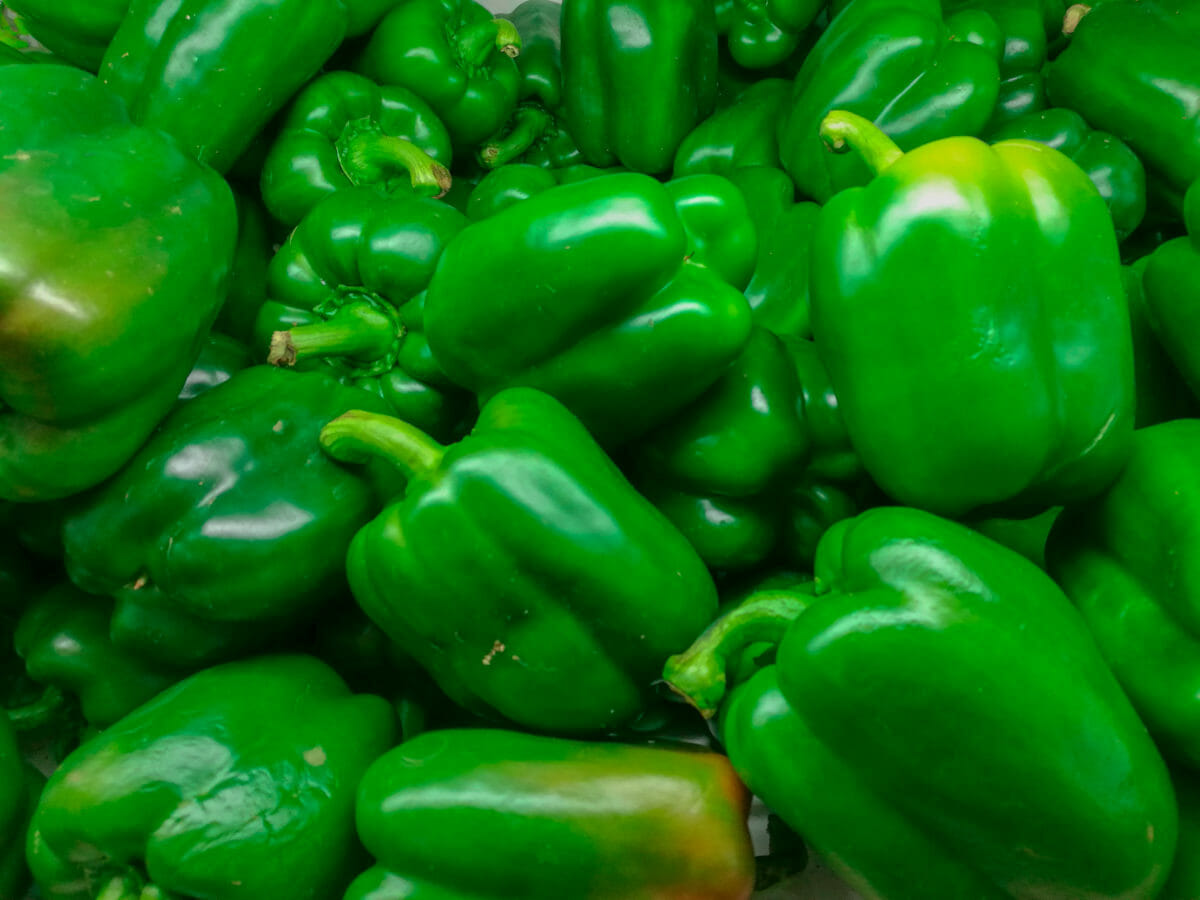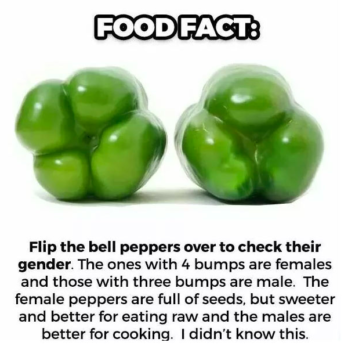Fake News from the Garden: Five Plant Myths DEBUNKED
Can you tell the sex of a bell pepper by the number of bumps on its bottom?
Fake News from the Garden: Five Plant Myths DEBUNKED
Can you tell the sex of a bell pepper by the number of bumps on its bottom?

Actually, you can’t. But lately, plenty of Internet memes on Pinterest and elsewhere suggest that you can. The problem with this claim is that bell peppers are not male or female. Botanically, it’s a meaningless statement. The flowers of some plants can be classified as male or female, but peppers are not one of those plants – their flowers have both male and female parts.
There are actually quite a few garden myths floating around out there. Let’s deflate a few.

Droopy Plants Just Need Some Water
This is certainly logical, and it’s often true. But several other things can cause wilting, including disease and insects or rodents gnawing on the stem. Better to stick your finger in the soil first to make sure it’s actually dry before inundating a droopy plant with water. If disease is making the leaves wilt, excessive water will only make it worse.
When Planting a Tree, the Bigger the Hole the Better
Tree planting instructions often say to dig the planting hole twice as wide and deep as the root-ball. This is hogwash, and can actually shorten the life of the tree. If you loosen the soil under the root ball, the tree will slowly sink as the soil settles, causing the base of the trunk to be below grade – a sure-fire way to end up with fungal diseases. Make sure the rootball is on firm soil when you plant. You can dig a wide hole if you want, but this, too, is unnecessary.
Pine Needles Acidify the Soil
A number of popular garden plants, including blueberries, rhododendron, azalea, and gardenia, grow poorly unless the pH of the soil is fairly acidic (they like a pH in the 4.5-5.5 range). Some parts of the country have naturally acidic soil, especially in high rainfall areas like the Deep South. Perhaps because there are so many pine trees in the Deep South, the notion that easily available pine needles can be mixed into the soil to lower the pH took root. But it’s baseless.
Bloom Booster Fertilizers Make More Flowers
On the garden center shelf, you’ll find many fertilizers, both organic and synthetic, claiming to promote bigger and more bountiful blooms. These products are invariably high in phosphorus, which does have an indirect relationship to flowering but is just one of many things that a plant needs to flower profusely. Furthermore, phosphorus-deficient soils are rare, and adding more phosphorus to soils that already have plenty has no impact on your plant’s flowers. Excess phosphorus is a pollutant, however, and if your plants aren’t absorbing it from the soil it will likely end up in the nearest waterway.
Follow us
This work is licensed under a Creative Commons Attribution-NoDerivatives 4.0 International License.
Want to republish a Modern Farmer story?
We are happy for Modern Farmer stories to be shared, and encourage you to republish our articles for your audience. When doing so, we ask that you follow these guidelines:
Please credit us and our writers
For the author byline, please use “Author Name, Modern Farmer.” At the top of our stories, if on the web, please include this text and link: “This story was originally published by Modern Farmer.”
Please make sure to include a link back to either our home page or the article URL.
At the bottom of the story, please include the following text:
“Modern Farmer is a nonprofit initiative dedicated to raising awareness and catalyzing action at the intersection of food, agriculture, and society. Read more at <link>Modern Farmer</link>.”
Use our widget
We’d like to be able to track our stories, so we ask that if you republish our content, you do so using our widget (located on the left hand side of the article). The HTML code has a built-in tracker that tells us the data and domain where the story was published, as well as view counts.
Check the image requirements
It’s your responsibility to confirm you're licensed to republish images in our articles. Some images, such as those from commercial providers, don't allow their images to be republished without permission or payment. Copyright terms are generally listed in the image caption and attribution. You are welcome to omit our images or substitute with your own. Charts and interactive graphics follow the same rules.
Don’t change too much. Or, ask us first.
Articles must be republished in their entirety. It’s okay to change references to time (“today” to “yesterday”) or location (“Iowa City, IA” to “here”). But please keep everything else the same.
If you feel strongly that a more material edit needs to be made, get in touch with us at [email protected]. We’re happy to discuss it with the original author, but we must have prior approval for changes before publication.
Special cases
Extracts. You may run the first few lines or paragraphs of the article and then say: “Read the full article at Modern Farmer” with a link back to the original article.
Quotes. You may quote authors provided you include a link back to the article URL.
Translations. These require writer approval. To inquire about translation of a Modern Farmer article, contact us at [email protected]
Signed consent / copyright release forms. These are not required, provided you are following these guidelines.
Print. Articles can be republished in print under these same rules, with the exception that you do not need to include the links.
Tag us
When sharing the story on social media, please tag us using the following: - Twitter (@ModFarm) - Facebook (@ModernFarmerMedia) - Instagram (@modfarm)
Use our content respectfully
Modern Farmer is a nonprofit and as such we share our content for free and in good faith in order to reach new audiences. Respectfully,
No selling ads against our stories. It’s okay to put our stories on pages with ads.
Don’t republish our material wholesale, or automatically; you need to select stories to be republished individually.
You have no rights to sell, license, syndicate, or otherwise represent yourself as the authorized owner of our material to any third parties. This means that you cannot actively publish or submit our work for syndication to third party platforms or apps like Apple News or Google News. We understand that publishers cannot fully control when certain third parties automatically summarize or crawl content from publishers’ own sites.
Keep in touch
We want to hear from you if you love Modern Farmer content, have a collaboration idea, or anything else to share. As a nonprofit outlet, we work in service of our community and are always open to comments, feedback, and ideas. Contact us at [email protected].by Brian Barth, Modern Farmer
August 29, 2018
Modern Farmer Weekly
Solutions Hub
Innovations, ideas and inspiration. Actionable solutions for a resilient food system.
ExploreExplore other topics
Share With Us
We want to hear from Modern Farmer readers who have thoughtful commentary, actionable solutions, or helpful ideas to share.
SubmitNecessary cookies are absolutely essential for the website to function properly. This category only includes cookies that ensures basic functionalities and security features of the website. These cookies do not store any personal information.
Any cookies that may not be particularly necessary for the website to function and are used specifically to collect user personal data via analytics, ads, other embedded contents are termed as non-necessary cookies.